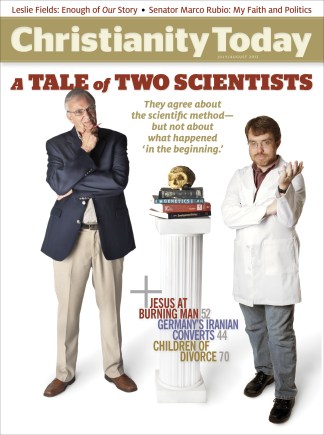The drowning death of a 1-year-old boy in a church baptismal at an unlicensed Indianapolis daycare has fueled debate over whether state governments should license faith-based childcare facilities.
In February, workers at Fellowship Assembly of God found Juan Cardenas in a baptismal filled with two feet of water. The church daycare was cited for 18 violations when inspected in November 2011.
Childcare ministries outnumber licensed centers 730 to 601 in Indiana; only about 5 percent meet state licensing requirements. Indiana is one of 13 states that exempt faith-based childcare providers from licensing.
Daycares and government officials have debated state licensing for years. In Missouri, 41 children died in unlicensed daycares between 2007 and 2010. Lawmakers focused on improving safety but rolled back rules for religious daycares in 2009 because of church-state concerns. In Pennsylvania, an appeals court recently settled a 50-year legal battle over the state’s authority to regulate religious daycares when it affirmed the 1997 forced closure of a Catholic daycare in Allentown.
Some say states should avoid licensing religious daycares. Clashes of belief are inevitable whenever government insists on supervising religion, said William Cox Jr., a professor of education at Regent University. “[And] to think the state is going to prevent all accidents is making the state out to be a god.”
Others say state licensing is necessary for safety. “Safety is non-negotiable,” said Milton Uecker, associate dean of education at Columbia International University. “As soon as you have too many children and not enough adults, it is not even good education.”
Indiana’s childcare ministries vary in the quality of services they provide, said Ted Maple, director of the United Way of Central Indiana’s Success by Six program. Some are hosted by churches as a way to generate revenue from unused space. Others are for-profit ventures housed in strip malls or residential homes.
“Church buildings are not typically designed [with] childcare in mind,” said Maple. So his program has provided local childcare ministries with funding for staff mentoring and improvements to facilities. “The faith-based community should be setting the example,” he said.
Licensing has not been an issue in other states, advocates say. For example, California requires it; yet Michael Stewart, director of the Central Coast Baptist Association, says this has not affected the religious identity of his association’s daycares. “Accountability is a good thing [when] dealing with kids who can’t talk or defend themselves,” he said. “Safety is not a religious issue.”










